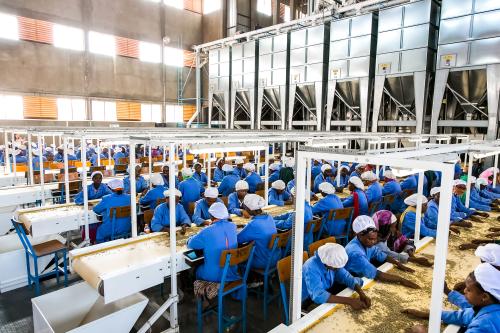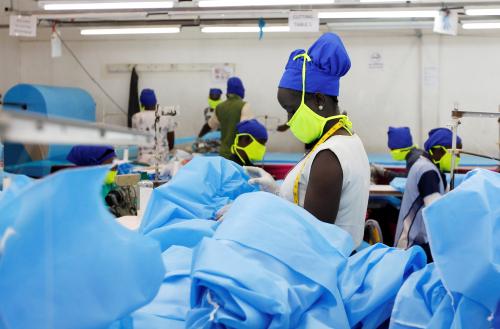While the 1980s and 1990s were characterized as lost decades for Africa, the 2000s and 2010s saw the continent enjoying economic growth higher than many other developing parts of the world. A remarkable downside of this growth performance, however, is that poverty did not fall by much, and acute unemployment and job precarity are still prevalent, mostly affecting the largest and most vulnerable population segments: young people, women, and rural populations. In a trickle-down effect, rising labor incomes are normally the primary way economic growth translates into higher living standards and lower poverty rates. The size of an economy’s formal private sector is correlated with that economy’s ability to generate decent jobs, and the size of the informal sector in Africa sector is symptomatic of a jammed structural transformation.
Factors behind Africa’s poor performance in creating decent employment lie on both the supply and demand sides. On the supply side, a booming population driven by the highest fertility rates in the world led to exponential growth in the working-age population. And job seekers, especially younger ones, face serious obstacles to their employability in most countries due to limited training. On the demand side, economic growth in Africa is driven by commodities—agriculture, oil, and mining—whose carryover to the rest of the economy is small. The productivity of agriculture remains low, and the mining and mineral industries are inherently capital intensive, employ little local labor, and leave behind only a marginal share of the revenues generated. The growth of other formal activities is deterred by an unfriendly business environment with high unit costs and a heavy-handed, often corrupt bureaucracy. Consequently, the bulk of employment in Africa is informal, which corresponds to much lower job quality. We argue that the appropriate policy response is to nurture Africa’s large number of informal micro- and nano-enterprises, which predominates the labor market, in such way that they can grow and generate better jobs.







